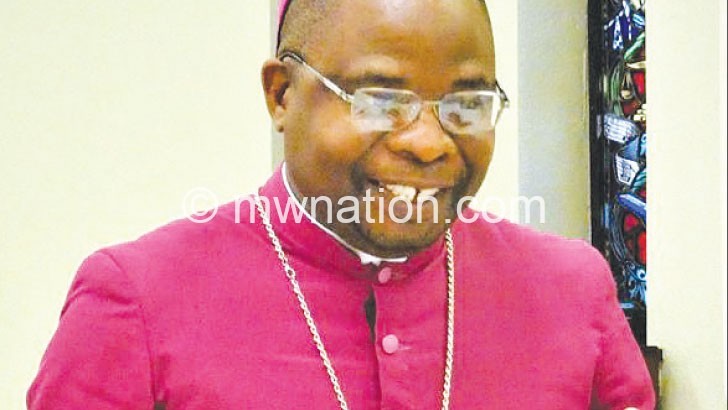Relevance of Christmas to humanity

Christmas, the annual festival of the birth of our Lord Jesus Christ, is with us once again. The day is celebrated all over the world in diverse ways. It is celebrated by eating Christmas cakes and Christmas pudding; sending Christmas cards to each other (although some Christmas greetings are now being sent through Internet or sms).
In public places, homes and streets Christmas trees are beautifully decorated. There are the Father Christmas distributing gifts to children (we are yet to see Mother Christmas). Christmas festival is also spiced with inspiring Christmas carols.
These Christmas activities replicate some of the first Christmas celebrations. The first Christmas carol was celebrated by the celestial beings, angels, when they announced the birth of Jesus to the shepherds. A few days later, “the Wiseman from the East” brought in their first Christmas gifts to the baby Jesus.
After these early Christmas events, the next Christmas celebrations were held in A.D 336. Then Emperor Charlemagne of France was coroneted the first Holy Roman Emperor by Pope Leo III on the Christmas Day in A.D 800. The Christmas gifts became popular in 1866, and Santa Claus was popular in New York. The Christmas tree became a tradition in middle ages in Germany.
There is also Christmas Island in the Indian Ocean south of West Java and another Christmas Island in the Pacific.
All this shows that Christmas is a worldwide phenomenon. There may be many reasons why Christmas is so popular. One reason could be that businesses make a lot of profits during Christmas festivals. The other reason could be that the Christmas festivals enable families to have fellowships and share gifts.
However, if these are some of the reasons Christmas is celebrated, then we have a serious problem. It means that the moment the shops will have no commodities and people will have no money, then there may not be Christmas celebrations. Or, that only the rich may be celebrating Christmas.
Yet, Christmas is celebrated by almost everybody, both the rich and the poor. This means that the meaning and relevance of Christmas go beyond the eating of food and the receiving of gifts.
The meaning, relevance and significance of Christmas is that it is concerned with human suffering caused by social, economic and political challenges as well as natural disasters. In spite of these challenges in life, people have to celebrate Christmas. This is because people should regard Christmas as God’s desire to deal with the plight of human beings.
At Christmas, the rich and the poor focus on what God, the creator of this world, inaugurated. God saw that the people he had created in his image were suffering. He first sent prophets to make sure that things change for the better.
Seeing that for centuries nothing was changing, God finally, in his wisdom, decided to deal with the plight of his people once and for all. The word of God says “For God so loved the world that He gave His only begotten Son, that whoever believes in Him shall not perish but have eternal life”. This is God’s purpose for Christmas, to redeem his perishing people.
The origin of this suffering is traced from the sin of the common ancestor of humanity, Adam. By eating the forbidden fruit, Adam disobeyed God’s law. From that time onwards, humanity has inherited and resolved to disobey God’s moral laws. They indulge themselves in various sinful acts and attitudes such as sexual immorality, witchcraft, hatred, jealousy, selfish ambitions, envy, drunkenness and slander. These sinful acts and attitudes have destructive consequences and are harmful in that they bring pain to ourselves and to our neighbours.
They are the causes of the social, economic and political upheavals humanity is suffering from. The result is the perishing world. God saw the perishing of his world. That is why he sent his son to redeem the world on the first Christmas day.
Sin is the contradiction of the excellence of God’s moral law and holiness. The Holy God is zero tolerant of sin. Sin has to be punished with death. God made it clear to Adam. On the first Christmas day, God resolved to purge sin out of the world. The sin-free world will mean that death and all the suffering shall be removed. There shall be peace and tranquility in the world.
This job had to be done by a special person with special qualities. The special qualities of Jesus whom God sent to the world on Christmas were that he was both fully divine and human. This would enable Jesus to be a double mediator presenting God and human beings and presenting human beings to God.
This means that Jesus Christ played two mediatory roles. First is that he was to be the mediator representing God to human beings. In this role, Jesus was fully and truly God. Because we, human beings, were alienated from God by sin, we needed someone who was fully divine to come between God and ourselves to reconcile us back to God. God knew that only someone who was fully and truly divine could be the mediator between God and humankind. That is why Jesus Christ as fully divine was known as “Emmanuel”—God is with us.
As mediator, Jesus was charged with the responsibility of revealing God. Only one who was from above would perfectly reveal God. Jesus revealed God in word and deed. In his teaching and preaching, Jesus revealed the Kingdom of God to be inherited by human beings. The Kingdom of God was to be God’s rule dynamically defeating enemies and evil including death. It will redeem sinners and bring to humanity the blessings of God’s reign.
In his acts or deeds, Christ revealed God’s attributes that he is omnipotent, omniscient, omnipresent, eternal and sovereign. Christ revealed God’s nature that he is loving, compassionate or kind, forgiving and caring. He demonstrated this in his acts of healing, feeding and forgiving sins.
Those early Christians who decided to celebrate Christmas were celebrating Christ who revealed God as the sovereign, loving, forgiving and compassionate father. We, too, today must celebrate Christmas for the same reason. Through Christ, we know who God is.
Secondly, Jesus was born on Christmas day to be the mediator representing human beings to God. In this mediatory role, Jesus Christ was born as a human being from a human mother. He became flesh and made his dwelling among us. It was in God’s wisdom that in order to deal with the sinful predicament of human beings it was necessary that this mediator must also be fully human to perfectly represent human beings to God.





